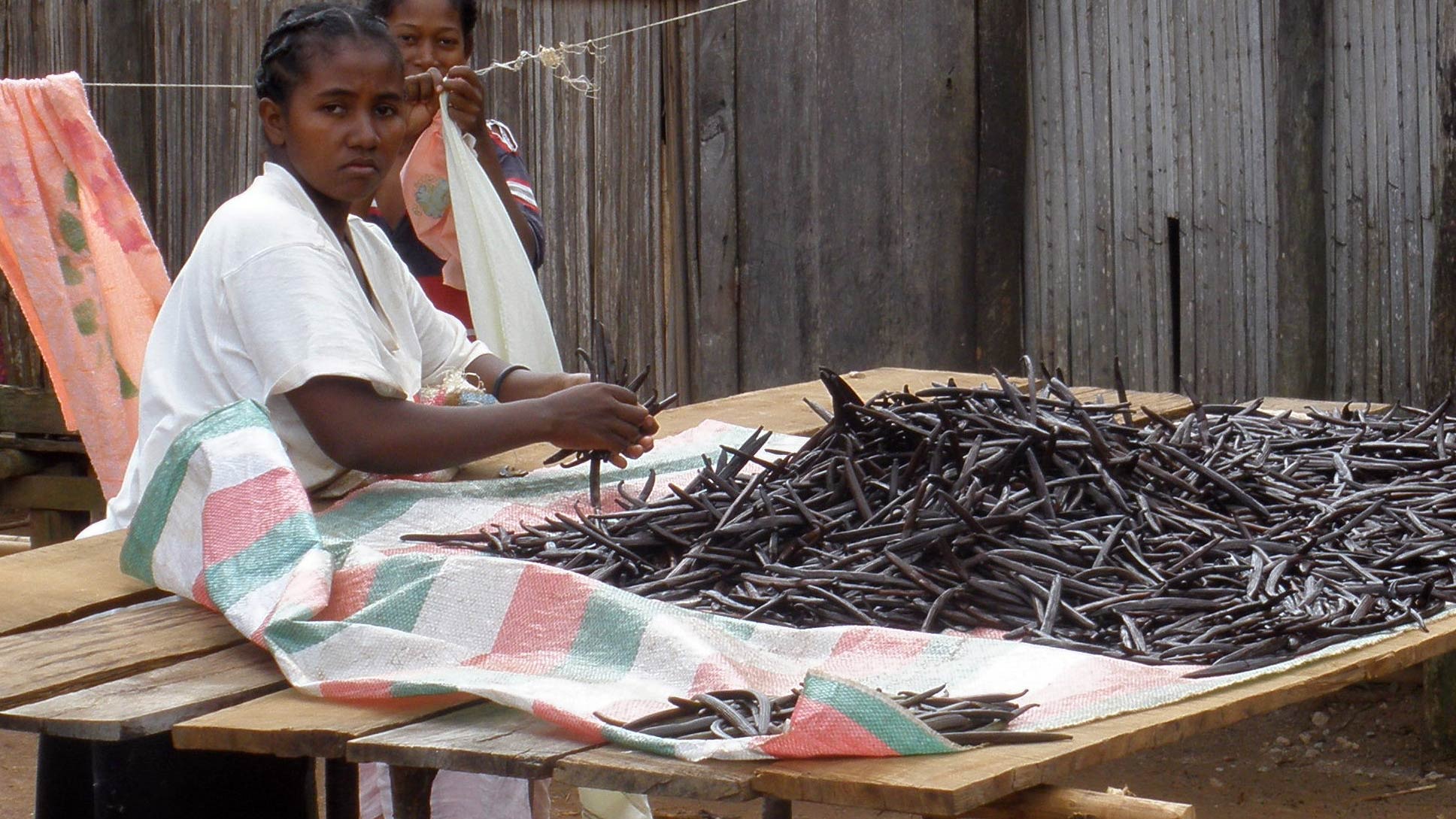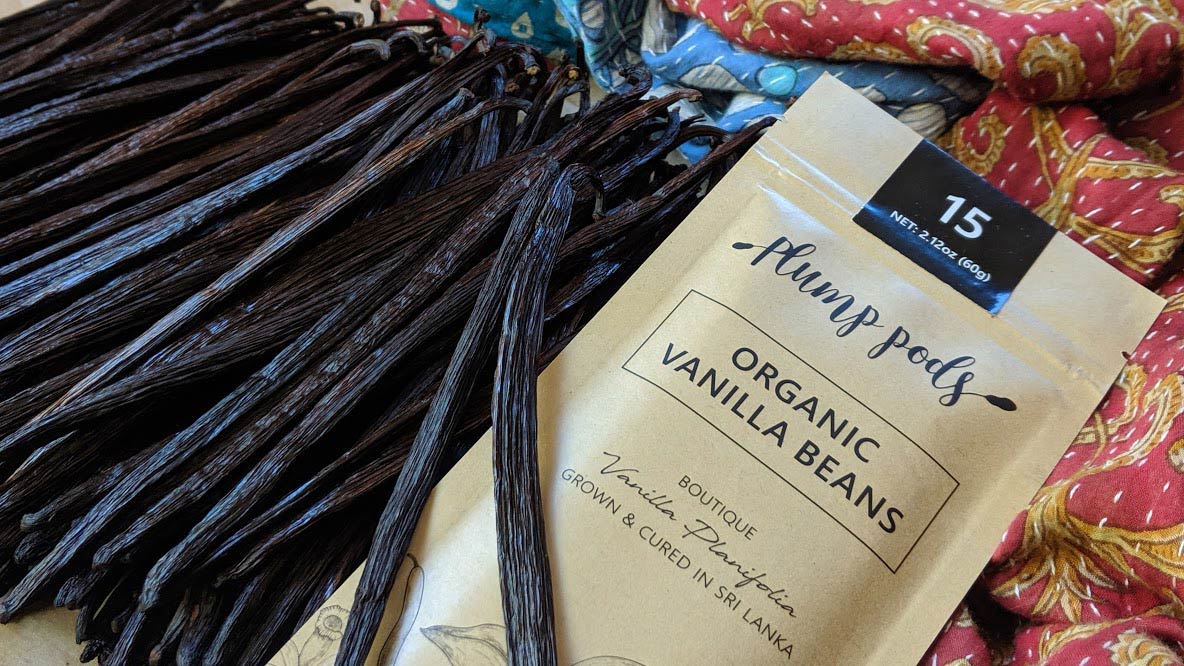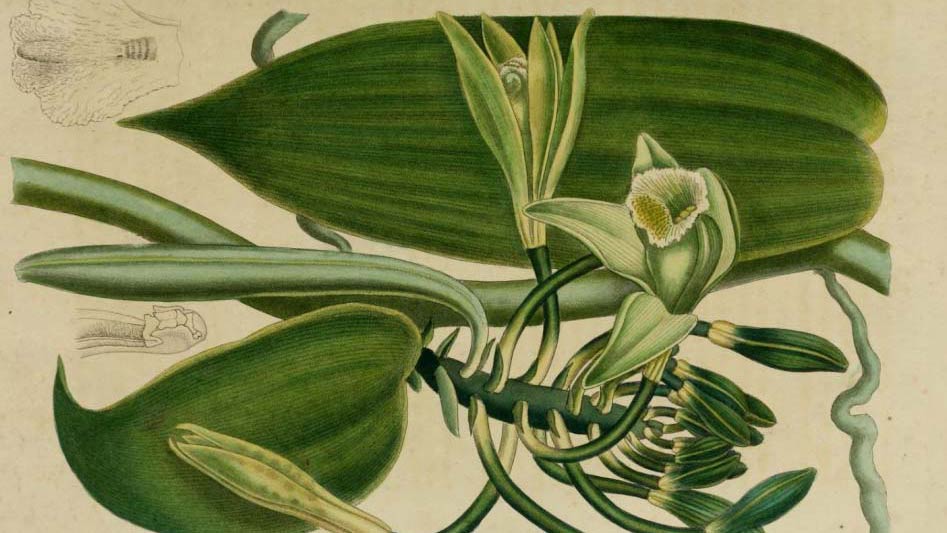Behind the alluring world of deliciously scented sweets and perfume, lies a dark side of vanilla. It is easy to take for granted the abundance of the world’s most renowned flavour. But the vanilla industry faces many challenges globally which continue to impact the availability, quality and price of the these little black pods.
Climate change a looming threat
Like vanilla’s tropical contemporaries–cocoa beans and coffee–climate change looms large as the greatest threat to future production. But in Madagascar, where the majority of the world’s vanilla beans are grown, another dark force is overshadowing the future of vanilla: human greed and corruption.
Madagascan vanilla industry plagued by corruption
Home to one of the worlds poorest populations, the lure of the vanilla bean crop is very high. But in Madagascar the price of vanilla is manipulated. Overseas buyers and government officials are in the loop of illegal activities that lead to price gauging of vanilla. Strong demand for natural vanilla, speculation, cyclones, drought, bad harvests and money laundering have driven prices as high as precious metals.
Forest clearing for cultivation
Madagascar is home to some of the most bio-diverse ecosystems in the world. But National Parks are being illegally cleared to make way for vanilla cultivation. Corrupt government officials turn a blind eye as they benefit directly from the illegal trade of the fine timbers, and subsequent proceeds from the vanilla bean harvest. Those who speak out against the environmental carnage are being jailed.
Farmers in poverty and danger
Despite global demand for vanilla beans, Madagascan farmers receive very little of the profit from their expensive crop. They still live in poverty–uneducated and malnourished, often utilising child labour. All the profits are going into the pockets of the middle men and big overseas buyers.
Night time raids occur often on vanilla crops by gangs meeting the demands of those exporting to the US, Asia, and Europe. Farmers are having to try and defend their crops with dire outcomes for these ill-equipped farming families. Farmers are so afraid they are harvesting early before the vanilla beans are ready, thus flooding the market with lower quality Madagascan vanilla beans.
Know the origins of your vanilla
NGO’s work with thousands of grassroots farmers to produce sustainable, traceable vanilla. They urge international buyers to look more closely at where their products are sourced. It is becoming increasingly necessary for consumers to be able to trace the origins of their vanilla to avoid fueling the unsustainable and illegal activities overshadowing the vanilla industry in Madagascar.
Plump Pods vanilla is ethically sourced
At Plump Pods, it is our mission to ensure our produce comes from ethical sources. We source our boutique vanilla from a direct-trade farmers co-operative in the central highlands of Sri Lanka. The co-op takes a holistic approach to supporting our farmers; from educating them about organic farming best practices, to employing family members in the processing plants. We are proud of the fact that our vanilla is grown sustainably in harmony with existing ecosystems, and that our farmers receive living wages and share in the profits of their valuable crop.
Traceable back to growers
By choosing to cook with Plump Pods cerified organic vanilla, you can be confident of the origins of your vanilla. Our beans are the same richly flavoured variety (Vanilla planifoila) as Madagascar Bourbon vanilla beans. However our pods are free of the corruption, forest clearing, and violence that is currently plaguing the Madagascan vanilla industry. Each pack of vanilla pods comes with a batch number and these delicious beans can be traced back to the growers.
It is no longer enough to just be consumers. We can all become participants–curious and conscientious citizens of the world–informed of the story behind the food we eat.




